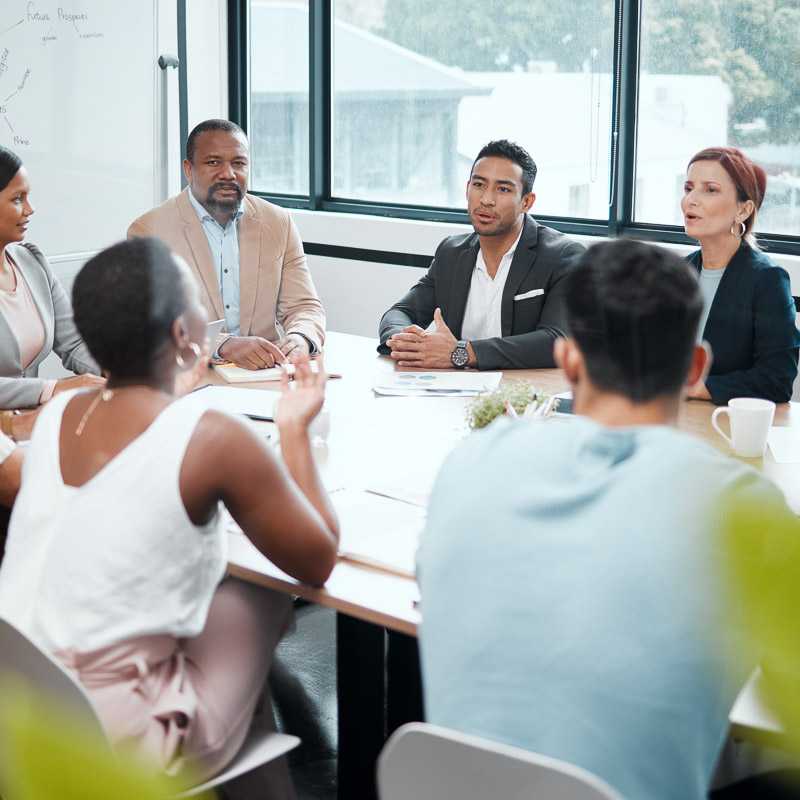

When I was invited to speak on the importance of virtual reality and product inclusion at a recent event, I introduced myself in American Sign Language (ASL): “Hello. Thank you for coming. My name is E-L-L-A.” I wondered in that moment whether audience members who were not deaf or knew ASL felt excluded from the conversation, and moreover, if that feeling of exclusion spurred a sense of solidarity for their deaf or hard of hearing colleagues. The ASL interpreter resumed translating and I continued speaking to the larger crowd about the crucial role of accessibility, inclusion and diversity in the modern workforce.
Charles “Chaz” McFadden, Chief Technology Officer for the Communication Services for the Deaf (CSD), approached me as I walked off stage, and signed, “Thank you for signing your name and introduction. It means more when it comes directly from you. Thank you for bringing up the critical issues you mentioned. These are areas my company is dedicated to solving, challenging and exploring.”
Today, APCO is working with CSD to ensure that people who are deaf or hard-of-hearing are hired across public and private sectors. Our dedicated team, part of the Equity and Justice practice, is working to identify organizations that are committed to strengthening inclusion and diversity through DEI initiatives. This comes at a critical moment in time as more organizations are expanding their commitments to diversity, equity and inclusion (DEI). Together, we are working to ensure deaf and hard of hearing candidates and employees are included in today’s workforce and part of the DEI conversation. The importance of these initiatives comes at a pivotal moment, especially as businesses are being scrutinized by their ability to drive change and promote a positive environment for the entire workforce.
DEI Still Fails to Include the “A”
In June 2022, President Biden signed an executive order to advance diversity, equity, inclusion and accessibility (DEIA) in the federal workforce. This executive order reaffirmed that the United States is at its strongest when the workforce reflects the full diversity of the American people. Yet, people with disabilities are often tacked onto DEI efforts as an afterthought, especially as it relates to the hiring, recruitment and retention processes. Despite efforts to recruit diverse talent, there are significant gaps in employee support systems, resources, leadership representation and retention strategies designed to include people with disabilities. Globally, people with disabilities represent about 15% of the world’s population but their participation in the workforce is disproportionately low. Globally, roughly 80% of people with disabilities are not employed, making this intersectional, dynamic group the most underrepresented and unemployed sector in today’s modern workforce.
Though some companies manage to foster an inclusive work culture through hiring practices and employee resource groups (ERGs), their employees with disabilities are often unsure about disclosing their disability in the workplace. Roughly, 4% of new hires self-identified as having a disability in 2021, up from 3.2% in 2019, while 5% of current employees self-identified as having a disability in 2021, up from 3.7% in 2019. Although there is steady growth towards self-identification, company cultures need to account for this slow progression towards equality and belonging. In fact, even leaders with disabilities aren’t always transparent about their disability, denying employees the role models who could inspire and mentor them. A recent survey found that the majority of employees (76%) and leaders (80%) with a disability were not fully forthcoming about their disability to their employers.
Inclusive recruitment processes, retention and professional growth strategies designed around the DEI model lack the basic inclusion of people with disabilities. So how can corporate institutions adjust and iterate to these trends to fundamentally challenge and improve the purpose of corporate DEI?
What Comes Next: Employ, Empower and Champion Employees with Disabilities
Corporations recruiting people with disabilities must recognize the specific needs of diverse populations throughout the hiring process and consider recruitment and retention strategies at the onset. These institutions must equip their workplaces—both in-person and remote employees—with the tools necessary to support personal and professional success.
For example, our client, Communication Services for Deaf, ensures partner organizations receive and benefit from CSD learning and development training, assistive technology implementation, resources and services. These tools not only modernize the workplace but make work possible and accessible for all people. Leveraging CSD as a partner organization, and their bespoke tools, allows companies to celebrate and champion accessible processes at every level and organization.
Discover Role Models: Large Tech Organizations Provide a Sign of the Times
Major tech companies are working internally to actively recruit and retain talent, hiring people with disabilities at all levels and supporting candidates with the tools necessary to experience a barrier-free interview process and workplace.
For example, one large e-commerce company incorporated an American Sign Language program that entails hiring interpreters as full-time employees. Each interpreter works with the same group of people and deaf employees to ensure their workplace is accessible and inclusive of their growth. This company-wide service, on such a massive scale, is one of the only corporate initiatives to provide deaf employees with a full-time interpreter.
Successful Workforces Depend on a Culture of Trust. How Does Yours Compare?
Such a widespread lack of openness around disability has led to a massive perception gap between how well business leaders feel they are providing accommodations for employees with disabilities and how well they are actually doing. While 67% of leadership believes their technological set-ups and cultures are supportive, only 41% of employees with disabilities agree and only 20% of employees with a disability feel the organization is fully committed to supporting them, according to Accenture’s disability survey.
According to the same survey, executives are about 1.3 times more likely to believe that employees with disabilities feel safe raising sensitive issues than employees with disabilities themselves believe. Because executives are overestimating how inclusive their organizations are, they don’t convey urgency around changing the culture and making sure that employees with disabilities are not just hired, but also motivated to stay and move up the career ladder. Workplace culture is complex, fluid and hard to define and articulate for any one matrixed organization. However, one way to try to capture employee culture is by breaking down barriers that contribute to exclusion and asking employees to weigh the effect of each one.
Chartering a Path to Equity: When Our Workforce Includes the Communities Around Us, We All Succeed.
Corporate leaders need to recognize that the meaning behind ‘diversity, equity and inclusion’ is not complete without embracing and championing accessibility. The future of DEI must proactively include people with disabilities from the employment pipeline to promotion. Our modern workforce depends on diverse and unique perspectives and employers need to actively build a diverse corporate ecosystem that is not only equitable, but accessible for all. The enduring legacies of employment discrimination, systemic racism and gender inequality are still felt in today’s workforce and many people with disabilities often live at the intersection of these historic inequalities. Too many underserved communities remain underrepresented in today’s workforce, especially in positions of leadership.
A path to corporate equity must include an ambitious, dimensional systematic strategy with DEIA embedded in hiring and employment practices, because when our workforce reflects the communities around us, we all succeed.
Ella Decker, APCO Alumna, coauthored this post.
Related Articles
The Multiracial Perspective: Enhancing Workplace Diversity
November 13, 2024


